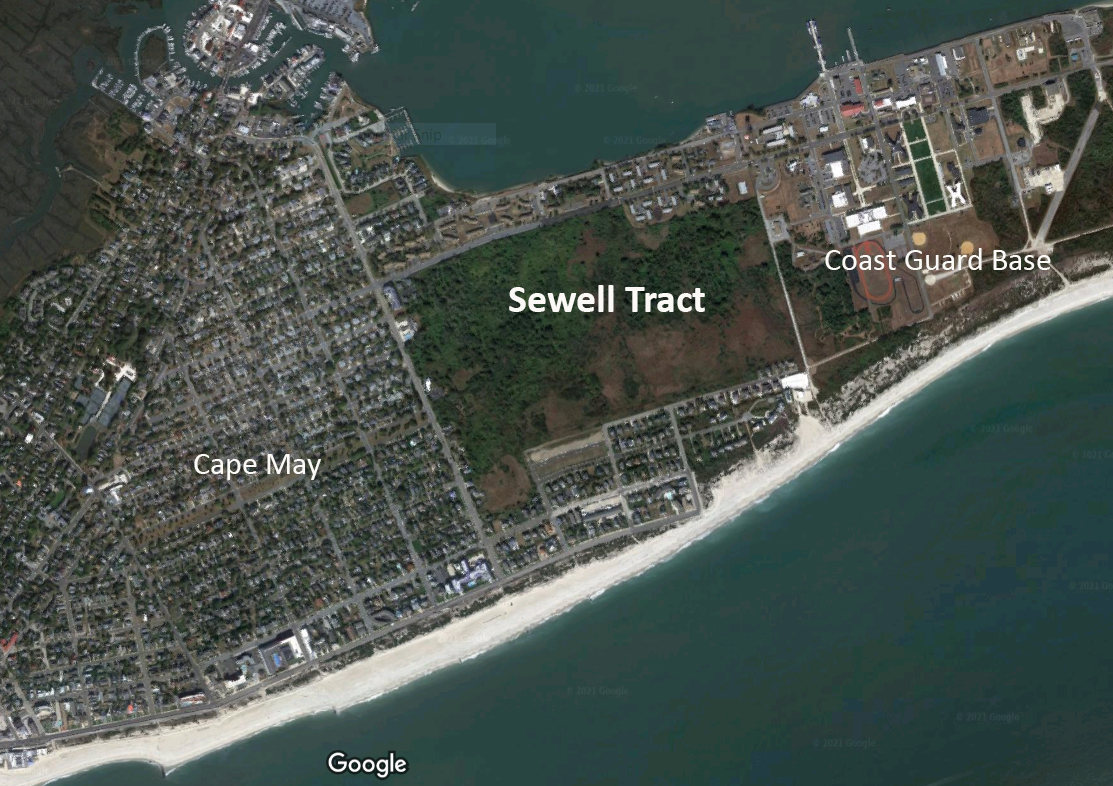|
After nearly 30 years of lawsuits and negotiations, the dispute over 100 acres of privately-owned, environmentally sensitive wetlands in Cape May has finally been resolved, with the outcome guaranteeing the property won't be developed. The owners of the property, East Cape May Associates, and the New Jersey Department of Environmental Protection completed an agreement in mid-August that will preserve the property in its natural state by transferring ownership to the state for $19 million. This tract represents the last privately held contiguous open space in Cape May and is located near the town's Coast Guard Training Center. "The American Littoral Society welcomes the news of the preservation of the East Cape May Associates tract at Sewell Point in Cape May City," said Tim Dillingham, Executive Director of the Littoral Society. "The Littoral Society has fought to protect this property from development for approximately 25 years, having participated as amicus in numerous legal proceedings, including two appellate arguments and a six-year mediation lead by the late Supreme Court Justice Daniel O'Hern. "Its environmental values, significance and sensitivities warrant its preservation," Dillingham said. "We commend the NJ Department of Environmental Protection, Concerned Citizens for Sewell Tract Preservation (a nonprofit that formed about seven years ago as a plaintiff intervenor in the long-running litigation), and the other litigants for achieving this result." The agreement closes the book on a lawsuit that has been underway since 1992. The outline of the settlement agreement has been in place since the beginning of 2021, but it took about six months for everything to be concluded.
Developers acquired the property in the late 1950s or early 1960s, with plans to build 366 homes. At that time, the city actively courted new development and reportedly agreed to fund the construction of infrastructure for the new homes, including roads, water, and sewer service. However, by the 1970s, state and federal authorities were working to preserve wetlands and denied permits for work at the site. After several attempts to move projects forward, the owners filed suit in 1992, alleging the environmental rules amounted to the government taking their land, which would mean they were entitled to compensation. The site is important to multiple species of migrating birds and local wildlife, but also helps absorb rainwater and improves drainage throughout east Cape May, making it important for protection from flooding and coastal storms. Comments are closed.
|
Archives
July 2024
Categories
All
|


